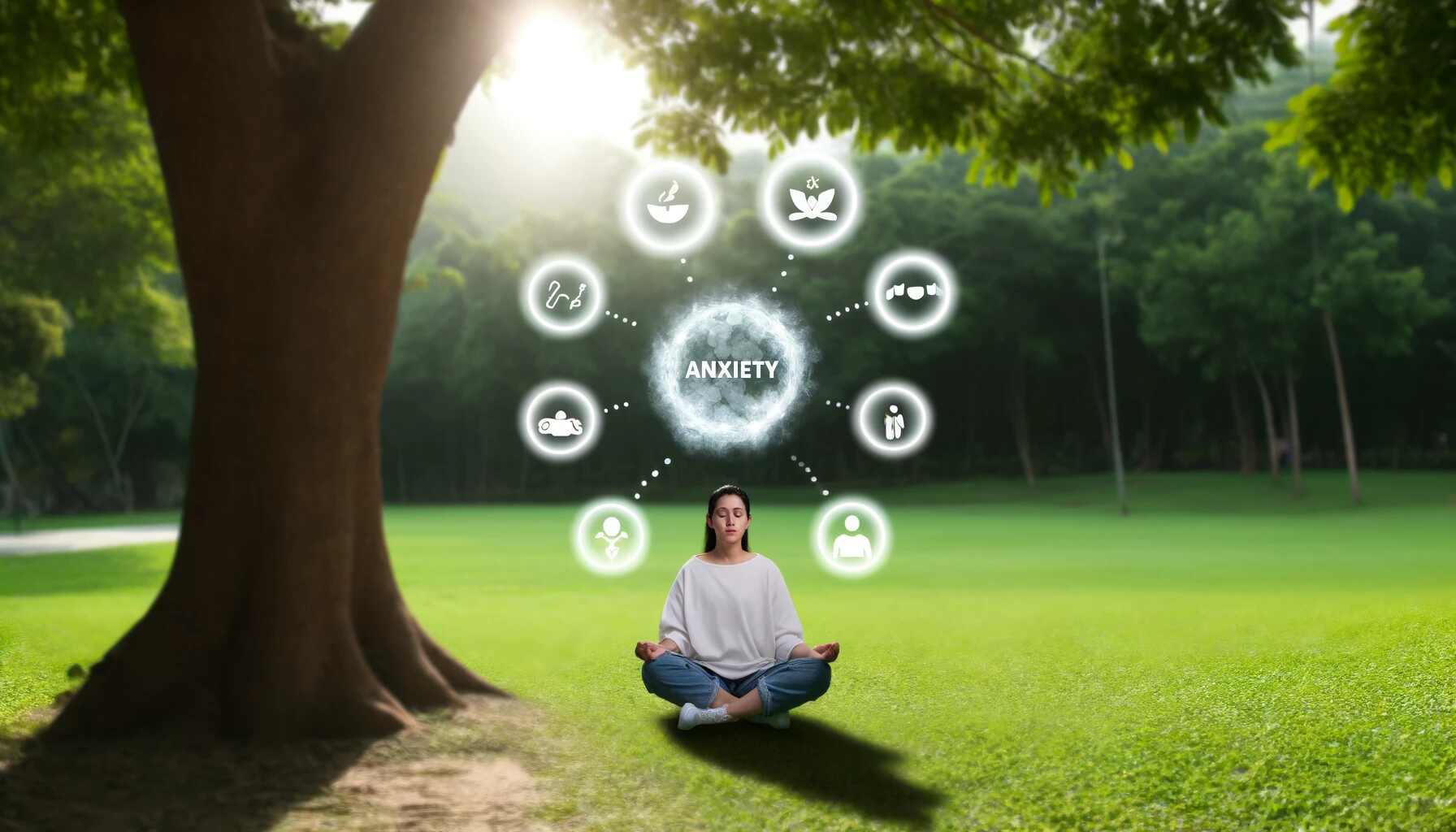Physical Address
304 North Cardinal St.
Dorchester Center, MA 02124
Physical Address
304 North Cardinal St.
Dorchester Center, MA 02124

Anxiety is a common experience, but when it becomes overwhelming and interferes with daily life, it’s essential to have coping strategies in place.
At Hapinex, we understand the importance of mental well-being and offer a comprehensive guide to managing anxiety. From deep breathing to medication, we explore various techniques and resources designed to empower individuals on their journey to better mental health.
Anxiety is a natural response to stress, but for some individuals, it can become chronic and debilitating. Anxiety disorders affect millions worldwide, impacting daily functioning and overall quality of life. Recognizing the signs and symptoms is the first step towards effective management.
Recognizing the signs and symptoms of anxiety is crucial for early intervention and effective management. While everyone experiences anxiety at times, an anxiety disorder involves persistent and excessive worry or fear that significantly impacts daily functioning. Here are some common signs and symptoms:
It’s important to note that not everyone with anxiety will experience all of these symptoms, and symptoms may vary in intensity over time. If you or someone you know is experiencing persistent anxiety symptoms that interfere with daily life, seeking support from a mental health professional is recommended. Early intervention and treatment can significantly improve quality of life and help individuals regain a sense of control over their mental health.
Deep breathing exercises are a simple yet powerful way to reduce anxiety in the moment. By focusing on slow, deep breaths, you can activate the body’s relaxation response, calming both the mind and body.
A balanced diet plays a crucial role in mental health. Certain foods, such as those rich in omega-3 fatty acids and antioxidants, have been linked to reduced anxiety levels. Avoiding excessive caffeine and sugar can also help stabilize mood.
Regular exercise is not only beneficial for physical health but also for mental well-being. Engaging in physical activity releases endorphins, neurotransmitters that promote feelings of happiness and relaxation.
Mindfulness involves paying attention to the present moment without judgment. Practicing mindfulness techniques, such as meditation and body scanning, can help reduce anxiety by fostering a sense of calm and acceptance.
Progressive muscle relaxation is a technique that involves tensing and then relaxing different muscle groups in the body. This practice can help alleviate physical tension and promote relaxation.
Identifying and minimizing sources of stress in your life can significantly reduce anxiety levels. Strategies such as time management, setting boundaries, and seeking support from others can help manage stress more effectively.
Self-care activities, such as taking time for hobbies, spending time in nature, and practicing gratitude, are essential for overall well-being. Prioritizing self-care can help replenish energy reserves and build resilience to stress.
Challenging negative thought patterns and beliefs is a key component of cognitive-behavioral therapy (CBT), an evidence-based treatment for anxiety disorders. By identifying and reframing irrational thoughts, individuals can reduce anxiety and improve coping skills.
Education is empowering. Learning about the nature of anxiety, its causes, and available treatment options can help individuals feel more in control of their symptoms and better equipped to manage them.
Social support is vital for mental health. Connecting with friends, family, or support groups can provide emotional validation, practical assistance, and a sense of belonging, all of which can buffer against anxiety.
Yoga combines physical postures, breathwork, and meditation to promote relaxation and stress reduction. Regular practice has been shown to decrease anxiety symptoms and improve overall well-being.
Quality sleep is essential for mental and emotional health. Poor sleep can exacerbate anxiety symptoms, while adequate restorative sleep supports cognitive function and emotional regulation.
Grounding techniques help individuals stay rooted in the present moment and alleviate feelings of dissociation or panic. Examples include focusing on the five senses or engaging in rhythmic activities like tapping or rocking.
Guided imagery involves visualizing calming scenes or scenarios to promote relaxation and reduce anxiety. This technique can be practiced independently or with the guidance of a therapist or audio recording.
Understanding what triggers your anxiety can help you anticipate and manage symptoms more effectively. Keep track of situations, thoughts, or behaviors that precede anxious feelings to identify patterns and develop coping strategies.
Writing about your thoughts and emotions can be a therapeutic outlet for processing anxiety. Journaling allows for self-reflection, problem-solving, and emotional expression, promoting greater self-awareness and insight.
While alcohol may provide temporary relief from anxiety symptoms, it can ultimately worsen anxiety in the long term. Excessive alcohol consumption disrupts neurotransmitter balance and can contribute to mood swings and dependency.
Establishing a consistent sleep schedule and creating a relaxing bedtime routine can improve sleep quality and reduce anxiety. Limiting screen time before bed and creating a comfortable sleep environment are also helpful strategies.
Medication may be prescribed for individuals with severe or persistent anxiety symptoms. Antidepressants, benzodiazepines, and beta-blockers are commonly used to alleviate anxiety and stabilize mood, often in conjunction with therapy.
Meditation practices, such as mindfulness meditation, loving-kindness meditation, and transcendental meditation, can promote relaxation and reduce anxiety symptoms. Regular meditation practice has been shown to change brain structure and function, enhancing emotional regulation and resilience.
Managing anxiety requires a multifaceted approach that addresses physical, emotional, and cognitive aspects of well-being. By incorporating coping strategies such as deep breathing, mindfulness, exercise, and social support, individuals can cultivate resilience and improve their overall quality of life.
At Hapinex, we’re committed to providing resources and support to empower individuals on their journey to better mental health. Remember, you’re not alone, and there is hope for a brighter, more resilient future.